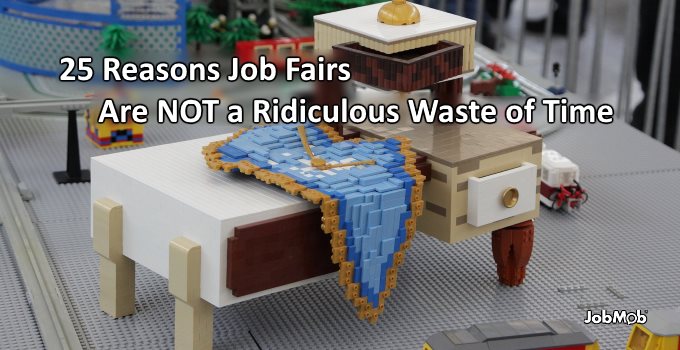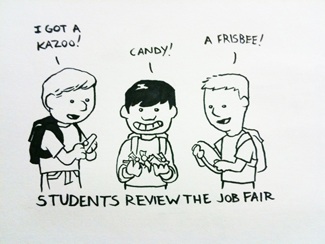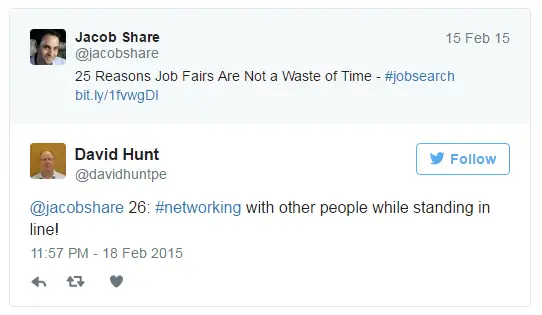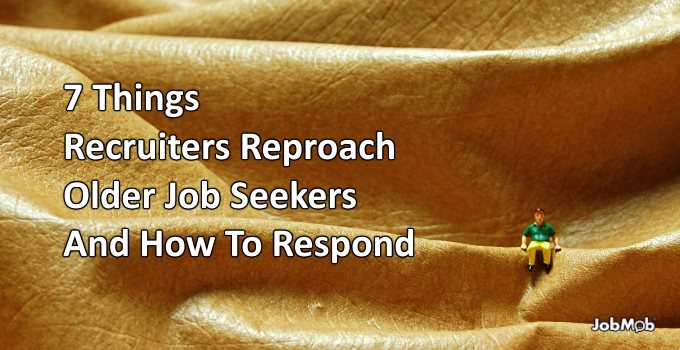Thinking of getting rehired after quitting? You had better have a good reason for leaving in the first place.
Photo Credit: JD Hancock
In August 2001, I left my job at Amazon.com in France as a web development team manager to move back to Israel. Almost a year later, I was struggling to find a job after the dotCom bust and my former team was moving to Seattle, so I applied to rejoin them there too.
It didn’t work.
At the end of the interview process, I was told that it came down to me and an internal candidate, and they decided to promote the internal candidate instead.
In this guest post, G.L. Hoffman explains that I shouldn’t have bothered trying.
Note: There is a poll embedded within this post, please visit the site to participate in this post's poll.New job not up to par?
Most companies will NOT hire you back if, say, you give the new job a try and find out it is not exactly what you were promised. You should know that because I have heard people say “well, if it doesn’t work out, I can always go back to my old job.”
This might be the case. Young, inexperienced managers will often say this during the exit interview, even. It is them being nice… I would not expect them to hire me back if I were you.
Most companies will not hire you back.
And they shouldn’t.
Forget about asking for job back after resigning
Here’s why.
Most companies understand that once an employee leaves, they have left. In effect, they have said that something at the work environment is so bad or so limiting (insert your own reason here), that they need to move on to another job. Once the employee ‘gets there in his or her own mind,’ it is very tough to go back and be satisfied in the old job.
Too often I have seen companies hire someone back only to see them leave again in a few months. I bet the average is over 75%; once they leave, they will leave again.
Plus, if the company does hire you back, what kind of message does that send to current, more loyal employees? An attitude of we-will-hire-back provides a safety net for everyone. I don’t want any of my employees thinking they can just go try a new job for a few months and get this one back.
There are rare exceptions
There are only a few instances where we have hired someone back—one girl went into the Peace Corps and the other went into the military. In both cases, we were thrilled to have them back.
We formed a small committee to evaluate whether our small company would hire someone back who did have extenuating circumstances. In effect, we allowed them to make the decision.
I was actually surprised at the intensity of the debate. Their attitude initially was “once gone, always gone,” but they did arrive at some conditions for the hire back.
Recommended conditions for a rehire?
What do you think? They agreed to recommend that we hire him back because:
- He found out his wife was pregnant and he needed the safety of our job vs. a commission only one or,
- His new startup could not get funded or,
- He agreed to sign a contract for three years and promised not to leave during that period, or
- None of the above.
The answer was #4.
We are very clear in the company about not hiring back. We talk about this because often younger, first job employees think that a company will hire them back. After all, they reason, it is the ‘nice’ thing to do.
So, when upper managers felt someone had a volunteering Peace Corps-type excuse reason, we knew we could not simply welcome him back with open arms. That would have destroyed that part of our culture. This is why we gave them the power over the decision. Somewhat risky, but the culture is that important to us.
What matters most
The departed employee had left us to go work for his family’s business, which was experiencing some issues. They needed his help, in other words.
Our ‘committee’ was very clear on their reason for allowing him to return–he had not taken another job. If he had left us for another company, there was no way they would hire him back. A family business emergency was different.
They feel good about their decision and so do we.
More on trying to get rehired
- how to ask for your old job back
- What will get you rehired? Or not
- Getting Re-Hired By The Company That Laid You Off
Bonus: can you really go back to your old job?
About the author
G.L. Hoffman is a serial entrepreneur and venture investor/operator/incubator/mentor. He is the former CEO of JobDig which owns and operates Jobdig.com and Linkup.com. G.L. has also been featured in US News and World Report, Forbes and the Wall Street Journal.
Too hasty? Subscribe to JobMob via RSS or email and follow me on Twitter for for calming advice on good decision-making for your future.
via JobMob More Information Here..








 How Older Job Seekers Beat These 15 Awful Stereotypes
How Older Job Seekers Beat These 15 Awful Stereotypes